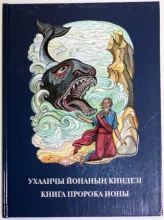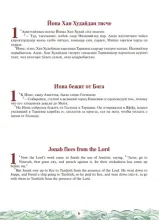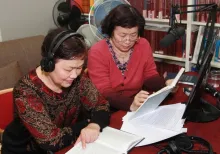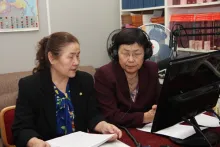Khakas
newsletter-060122

The contemporary Khakas people are descendants of the Yenisei Kyrgyz, who ruled Khakassia in the 7th century A.D. and were later conquered by Mongolian tribes. Today’s Khakas are neither Muslim, like the Kyrgyz of Central Asia, not Buddhist, like their neighbouring Tuvans, who were also dominated by Mongolia for part of their history...
news-30092021
A new Scripture portion in the Khakas language - the book of the prophet Jonah - has arrived in Abakan, the capital city of Khakassia in south Siberia.
According to the 2010 census, the Khakas language is spoken by 42,604 people. It belongs to the south Siberian group of the Turkic languages and is spoken mainly in the Republic of Khakassia and partially in Krasnoyarsk Region and Tuva.
After the release of the New Testament in Khakas in 2009 and its reprint with a parallel Russian translation in 2011, the Khakas project had a rather long break while preparing for the next stage - the translation of the Old Testament. Currently, Genesis, Exodus, Psalms, and the books of Habakkuk and Malachi are in the works.
newsletter-010917

news-05.03.13
IBT staff in Moscow recently completed an almost month-long project to finish the audio recording of the New Testament in the Khakas language of south Siberia. The Gospels were recorded in Khakas in 2008. The full NT was published only in 2009, and this was the first opportunity to complete the recording of Acts through Revelation.




